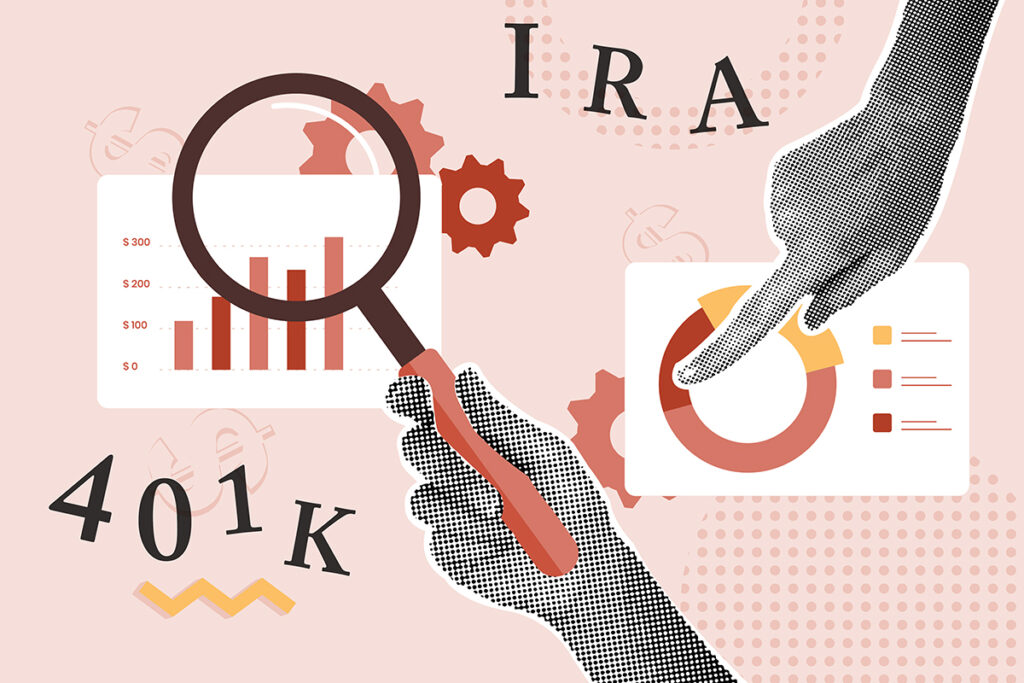A US Expat’s Guide: Managing Your 401(k) and IRA from Japan
The cornerstone of any solid financial plan is a well-managed retirement account. However, the demands of living and working abroad, especially as a US expat in Japan, can make this a challenging priority. Many Americans living overseas face complications with their US-based investments, including their 401(k) and IRA.
Just because these plans are easy to overlook doesn’t make them any less vital. This article will help you understand the key issues Americans face when managing their retirement accounts from abroad and outline a clear path forward for growing your wealth.
Why is managing US retirement accounts from Japan so difficult?
Due to specific tax agreements and laws designed to prevent fraud, the regulatory framework for US expats can be complex. While the goal is to prevent double taxation, the unintended side effect is that it can limit your access to US-based banking and investments. Many financial firms are hesitant to take on clients living abroad because of the extra paperwork and regulatory burdens.
We’ve seen numerous clients told they must move their money once their firm discovers they are no longer a US resident. This is compounded by laws like FATCA (Foreign Account Tax Compliance Act), which requires international financial institutions to report US citizens attempting to open accounts abroad. These regulations can make it difficult for Americans to access financial services in their host country as well.
This is where specialized financial firms can help. For more insight into the difficulties of being an expat abroad, check out our article on The 4 Challenges Americans Have Investing in Japan.

What is a 401(k), and what happens to it when you move abroad?
A 401(k) is the most common employer-sponsored retirement account in the US. Contributions are automatically deducted from your paycheck and invested, often with an employer match. These contributions are made with pre-tax dollars, meaning you will pay taxes on your withdrawals later in retirement.
There are specific rules for 401(k)s, including annual contribution limits ($20,500, or $27,000 if you are over 50). Early withdrawals before age 59.5 can also incur a 10% penalty in addition to regular taxes.
Because many US-based firms do not want to work with non-US residents, you typically have two main options for your 401(k) when you move abroad:
- Leave it with your former employer: You are legally allowed to leave your 401(k) with your former employer’s plan indefinitely. However, you cannot make new contributions, and the account maintenance fees may eat into your gains over time.
- Roll it over into an IRA: This is often the best option. A rollover allows you to transfer your 401(k) assets into a self-directed IRA, giving you more control and flexibility. However, it’s essential to find a firm that has unrestricted access to US accounts for expats living abroad.
What is an IRA, and how is it affected by moving abroad?
An Individual Retirement Account (IRA) is a self-funded retirement plan that allows you to save and invest on your own. You can open an IRA with a bank or brokerage firm or have a financial advisor manage one for you. You can invest in a wide range of assets, including stocks, bonds, and ETFs.
Like a 401(k), IRAs have rules regarding contributions and withdrawals. The 2022 annual contribution limit is $6,000 ($7,000 for those over 50), and early withdrawals before age 59.5 typically come with a 10% penalty.
While IRAs are more flexible than 401(k)s, you may still run into issues with firms when living abroad. Many brokers will close or restrict your account once they realize you no longer have a US address. This is why working with a firm that specializes in handling US accounts for expats is the most secure way to handle your retirement planning from Japan.
What is a Rollover? Why should you do one?
A rollover is a process where you transfer the assets from a 401(k) to another retirement account, most often a traditional IRA. While it may seem like an extra step, initiating a 401(k) rollover is a smart financial decision, especially if you’re a US expat.
Here are the key reasons to consider a rollover:
- You’re moving abroad: A rollover allows you to consolidate your retirement savings with a firm that can legally and reliably serve you from Japan, giving you peace of mind.
- You’re switching jobs: Consolidating your retirement funds into a single IRA makes it easier to track and manage your wealth, rather than leaving smaller balances with multiple former employers.
- You’re retiring: Rolling your 401(k) into an IRA can give you greater flexibility, lower costs, and more investment freedom, which may be ideal as you approach or enter retirement.
By paying attention to your retirement accounts and considering a rollover, you can avoid leaving your hard-earned money behind. Americans collectively have an estimated $1.35 trillion left behind in retirement accounts from previous employers. A direct rollover should not incur a tax liability.

FAQ
Can I contribute to my US 401(k) or IRA while living in Japan?
You cannot contribute to a former employer’s 401(k) plan. You can, however, contribute to an IRA as long as you have US-sourced earned income, or do not exclude all of your income using the Foreign Earned Income Exclusion.
Is my US retirement account taxed in both the US and Japan?
As a US citizen, you are subject to US taxation on your worldwide income, including retirement account withdrawals. Japan may also tax these distributions based on its own tax laws. It is crucial to consult with a financial and tax professional who specializes in cross-border planning to understand your specific situation.
How do I find a financial advisor who can help with my US retirement accounts from Japan?
Look for a firm that is specifically licensed to operate in Japan, has a physical presence in the country, and specializes in working with US nationals. This ensures they are familiar with the unique regulatory and logistical challenges of cross-border financial planning.
In Conclusion
Managing your retirement as a US citizen living in Japan has many moving parts and complications. Having a financial advisor with specialized expertise can help you navigate these challenges to maximize growth and ensure your accounts are set up correctly.
Argentum can help US nationals with their investment needs, including managing their US holdings. Please feel free to contact Argentum Wealth for a free consultation and find out more about your options while living abroad.
Argentum Wealth does not provide tax, legal, or accounting advice. This material has been prepared for informational purposes only, and is not intended to provide, and should not be relied on for, tax, legal, or accounting advice. You should consult your own tax, legal, and accounting advisors before engaging in any transaction.
Argentum Wealth Management is licensed through the Japanese Financial Services Authority (FSA) to give financial advice. The FSA strongly recommends that you only receive financial advice and services from a locally licensed and regulated firm.

